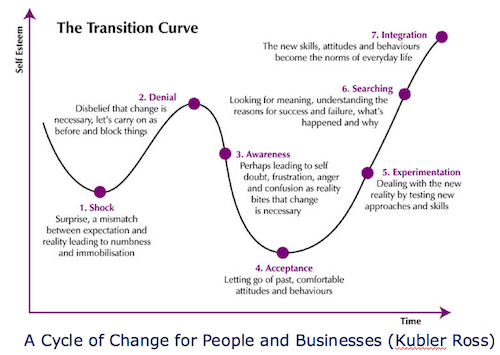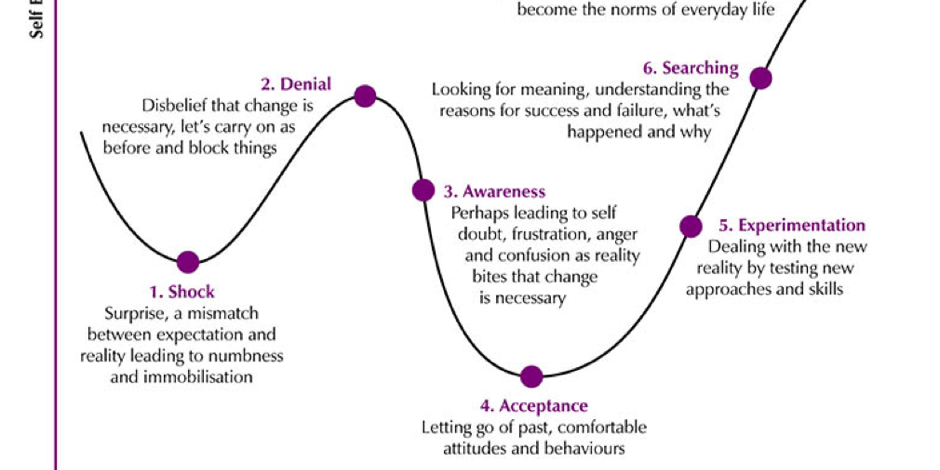[box]Martin’s articles have been published in:
ILM, 12th July 2016
Growth Business, 18th July 2016
HRM Guide, 11th August 2016
Fresh Business Thinking, 16th August 2016[/box]
The result of the recent Brexit referendum in the UK came as a complete shock for many people who had been expecting ‘Remain’ to win which of course would have meant ‘No change’, carry on as before.
Several people who voted ‘Remain’ have commented to me about their feelings of anger and despair. This triggered a reminder of the value of understanding the stages that people go through when coping with change in their lives. The Kübler-Ross model is a well-known model developed by Dr Elisabeth Kübler-Ross who pioneered methods in the support and counselling associated with death and dying. The principles behind this model also apply to situations where people are coping with the trauma brought on by change in general, for example being made redundant, or change in the workplace, or maybe by a shock Brexit result!
You may find it helpful in work environments to use a slightly adapted model to include the following stages: shock, denial, awareness, acceptance, experimentation, search and integration as illustrated.

Right now in the UK, with the referendum only a few days ago, you can sense that many people are still in the shock or maybe the denial phases. People feel numbness and despair, they may be dazed and perplexed.
Different people will be at different stages and they will transition through the phases at different speeds. They may oscillate between phases too. It is helpful when supporting people through this kind of change to recognise the signs of each phase and adjust how you help and support people depending on their phase.
For example, when people are still in the ‘shock’ phase, they will certainly need empathy ‘I can see why you feel like that’ but they are unlikely to respond well to ‘logical’ argument about the ‘pros and cons’. They may want to vent their anger. Do let them and listen, but don’t get into a ‘logical’ argument. Equally, when they are in the ‘denial’ phase, it’s best not to raise false hopes that it might not happen, but do confront the issue and get them talking.
There are other strategies that can be used as they move through the different phases, for example when they enter the ‘experimentation’ phase, support them and let them discover the ‘new world’ and start to think out of the box. Don’t knock down their ideas.
There are many change management approaches beside the Kübler-Ross model and I have found these tools and techniques as important, if not more important than the traditional quality tools and techniques needed for effective business improvement. I described several of these in Lean Six Sigma for Dummies, but I would be the first to admit that it is a lot harder to put these tools into practice than just read about them (or even write about them) but seeing the reactions to the Brexit vote reminded me of how useful these techniques can be in supporting people who are going through ‘change’.







